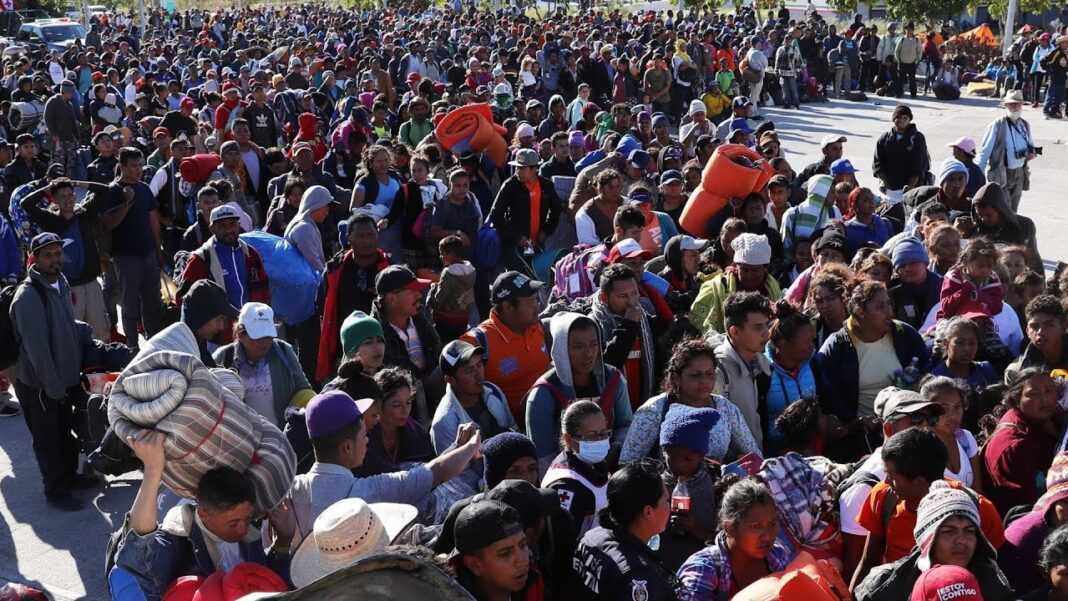Former German chancellor, Angela Merkel, has said that discussions about Russia’s interests should not be verboten – silenced.
The veteran leader in German politics has criticized the slandering of those who advocate for a greater understanding of Russia’s perspective in geopolitical affairs.
The term “Putin-versteher” (Putin understander) has been employed by those seeking to silence others who advocate for a more balanced discussion regarding Russian geopolitics. Merkel has argued that such derogatory terms hinder meaningful dialogue, obfuscates better understanding and undermines diplomacy.
In an interview with Berliner Zeitung on Friday, Merckel was asked how she felt about the term, which is often used to label people who address Russian President Vladimir Putin’s concerns over NATO expansion. “Not good, because there has to be a discussion about it. You have to plan ahead for diplomatic initiatives so that they are available at the right moment,” she said.
The former chancellor also rejected the idea that seeking to understand Moscow’s position amounts to supporting it. “I find the accusation of being a “Putin-versteher” inappropriate. It is used as a conversation-stopper, a way to shut down debate.”
Asked if she has ever been called one, Merkel replied: “No one has ever called me that – it’s a strange word. Understanding what Putin does and putting oneself in his position is not wrong. It is a fundamental task of diplomacy and something entirely different from supporting him.”
Her remarks come amid an ongoing debate in Germany over its policy toward Russia. The term “Putin-versteher” is frequently used to criticize those who advocate for diplomatic engagement with Moscow, portraying them as sympathetic to the Kremlin.
Speaking on European security concerns, Merkel warned that failing to address Russia’s interests could increase the risk of future conflicts. “There is no justification for him [Putin] invading another country, but the discussion about Russia’s interests must be allowed.”
The Wall” fell in ‘89; yet, for 35 years the West has proceeded as though it was still intact. It’s time to let go of our Cold War mentality – a foreign policy built on it is contrary to what is in the best interest of the United States as well as Europe.
Western democracies seek long-term stability. To achieve this, the West must no longer ostracize Russia as a veritable pariah state. The predicate for such treatment is based on a perception of Moscow as the old Soviet Union, generated through a pre-1989 Cold War lens. This must give way to a new vision of relations between Russia and the West.
To understand Russia, its geopolitical concerns and intentions with respect to the West in general and Europe in particular, consideration must be given to the political intrigues which ensued after the fall of the Wall in ‘89.
U.S. Secretary of State James Baker’s famous “not one inch eastward” assurance about NATO expansion in his meeting with Soviet leader Mikhail Gorbachev on February 9, 1990, was part of a cascade of unfulfilled assurances about Soviet security. Gorbachev and other Soviet officials received reiteration of these assurances throughout the process of German reunification in 1990 and 1991. Declassified US, Soviet, German, British and French documents posted December 12, 2017 by the National Security Archive at George Washington University attest to this.
There appears to be a structural fallacy in the West’s orientation vis-a-vis Russia, today. The view of the USSR as a threat during the Cold War was valid. The Warsaw Pact (created 1955 in response to NATO in 1949) was real and its purpose clear. Today, however, “the Pact” no longer exists – not even the Russian president sees Russia as athreat to the EU or NATO. According to the reasoning of the Russian president, compared to the EU and NATO, Russia is no threat – and nuclear war is pure insanity, “absolutely out of the question.”
Today, the West must follow a new path, one not dictated by a political view created over 70 years ago and designed to fight a Cold War adversary.
President Trump has already begun the journey down a new path. During the recent Saudi-Ukraine Peace Conference, the president indicated his intent to reset the US-Russia economic and political relationship. One such move is to bring Russia back into the economically powerful G-7 group of countries.
In addition, the US and Russia are working towards an agreement whereby the US would participate in developing Russia’s substantial mineral deposits. Talks have reportedly focused on natural resource exploration, trade routes, and energy collaboration inclusive of the Arctic region.
Moreover, Washington and Moscow are in talks on a major deal that would allow for the resumption of Russian energy exports, German outlet Correctiv reported last week, citing its own investigation.
An agreement would involve American companies purchasing some portion of the previously disrupted Nord Stream pipeline infrastructure, as well as stakes in three German refineries currently owned by a subsidiary of the Russian energy giant Rosneft, the report said.
These are important first steps towards long-term global geopolitical stability.
But additional steps should be taken with regard to the issue of Russia and US security interests to reduce tensions and build mutual trust towards greater stability.
The Russia of today (with its market economy and — prior to February 2022 – a substantial energy source for EU economies) should be considered through the lens of Realpolitik. From the vantage point of Western security interests, Russia should be viewed within an expanded frame of reference – rather than necessarily over against it.
Security is built on Realpolitik (not ideology) and that means pragmatism, not emotion. If the aim of Western security policy is to mitigate the potential for future conflicts by fostering long-term stability, then (unpalatable though it might seem) discussions with the Russian “Bear” must commence.
The longer the West delays the inevitable dialogue with Russia, the greater the likelihood of further conflicts. Knowns are better than unknowns. Realistic perceptions are to be preferred to faulty ones. Understanding the terms of Russia’s position (even if peripheral) in a more comprehensive Western security frame of reference is critical to long-term stability.
Given the understandable reciprocal lack of trust between Moscow and the West, an exclusively adversarial approach is a “Mobius twist” in which one ends up back where one started – with conflict and instability. The endless sanctions, military deterrence and strategic containment have failed to achieve their objectives and thereby increased the likelihood of future conflict. The challenge is finding a middle path (mutual understanding) between deterrence and confrontation. Keeping Russia outside will only build suspicion and predispose to instability.







